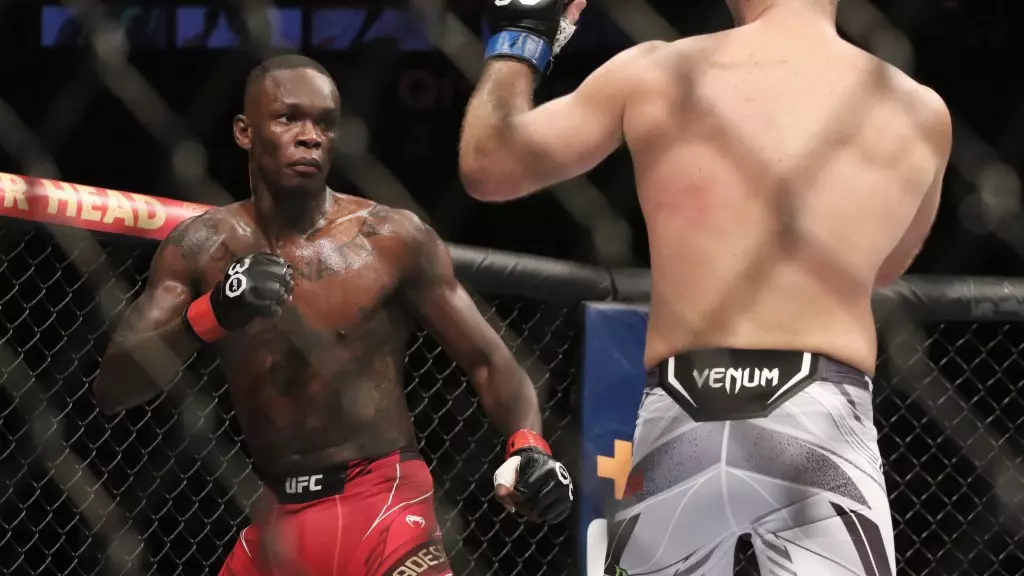Kevin Holland, currently one of the most active fighters in the UFC, has carved a niche for himself through his willingness to take on anyone inside the octagon. This is evident as he prepares for his highly anticipated fight against Roman Dolidze at UFC 307 in Salt Lake City. While many athletes relish the chance to face off against elite fighters like Israel Adesanya, Holland’s attitude towards a potential matchup with the former middleweight champion deviates from the norm. His candid dismissal of the prospect offers insight into not only his mentality but also the shifting dynamics within the UFC’s middleweight division.
Adesanya’s Current Standing
Israel Adesanya has long been a dominant presence in the middleweight division, showcasing his remarkable striking skills and tactical prowess. However, following two consecutive title losses, his status has transitioned from a formidable titleholder to a fighter seeking reclaiming relevance rather than a championship. Holland’s remarks on Adesanya’s current form—characterized as “running backwards and getting clipped”—reflects a shift from the respect typically conferred to former champions. Holland’s disinterest highlights the impact of recent performances on fighters’ legacies and how perception can shift rapidly in the competitive combat sports landscape.
Holland expressed that the allure of fighting Adesanya has diminished, stating that he would rather face an opponent like Paulo Costa, whom he perceives as more engaging in terms of fight style. This preference underscores a deeper discussion regarding what constitutes an “exciting” fight. In a sport that thrives on high-octane action and fan engagement, fighters must also consider their legacy and growth within their respective divisions. Holland’s focus on activity and engagement rather than merely fighting high-profile names emphasizes a broader strategic approach to his career.
Active Participation and Pay Structure
The UFC landscape has been shaped significantly by how fighters engage with one another, and Holland has taken a pro-active stance on the importance of activity in securing financial stability—an argument he defends vigorously. Fighters who fight more frequently often find themselves with greater earning potential, and Holland’s recent schedule reflects that commitment. Furthermore, dismissing a once-coveted matchup since Adesanya’s decline illustrates how professional athletes’ decisions are influenced not just by the potential glory of a win, but by their immediate ambitions and marketability.
In the ever-evolving world of mixed martial arts, the significance of rivalries can fluctuate dramatically based on performance and perception. Holland’s views on Adesanya signify not just a personal preference but also a broader commentary on how fighters assess opportunities in a division saturated with talent. As fighters like Holland seek not just to win but to create memorable and engaging fights, the dynamics of rivalry will continue to evolve, reshaping the narrative around who deserves to share the octagon and under what circumstances.
Holland’s approach offers a refreshing take on what it means to be competitive in today’s MMA landscape, where legacy and current performance intertwine to define a fighter’s path forward.

